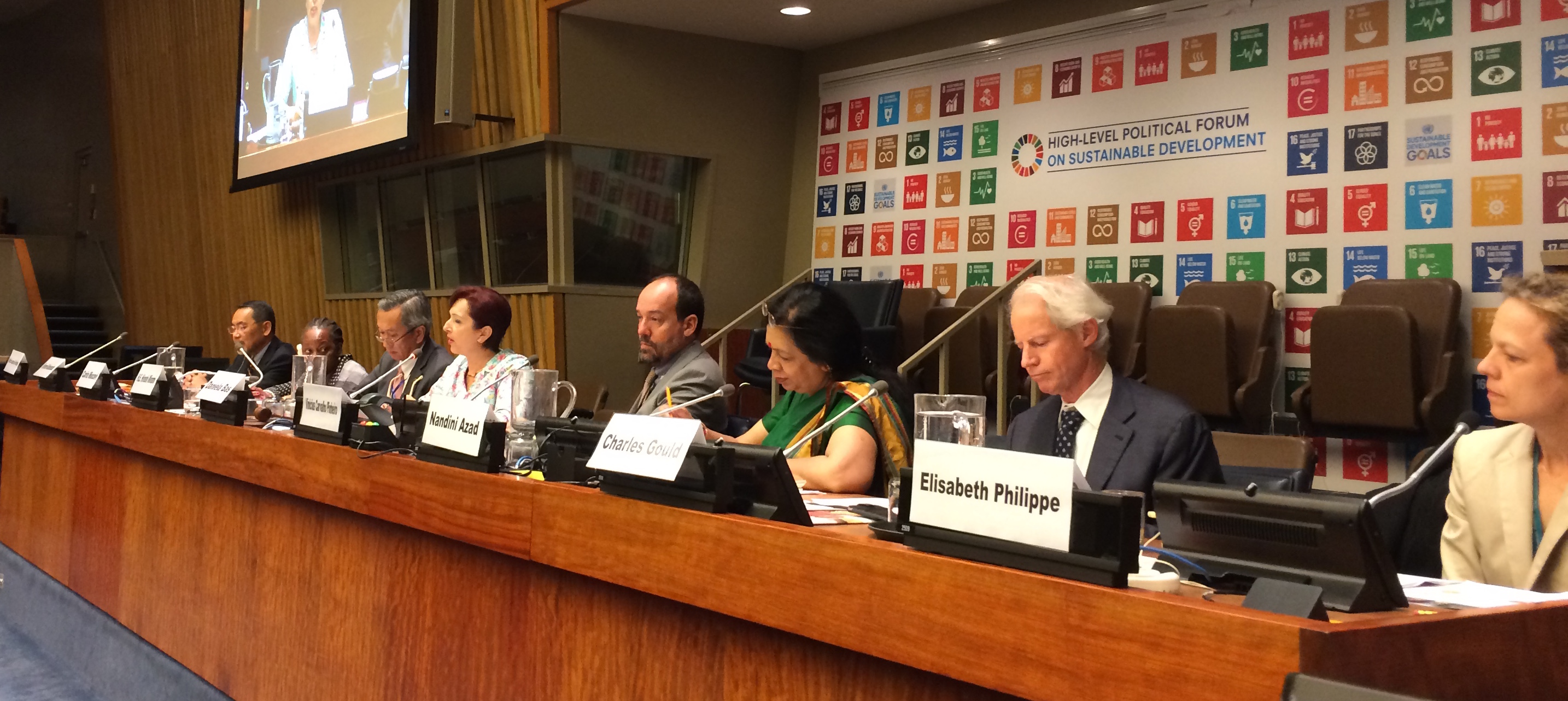On 14 July 2017, COPAC celebrated the International Day of Cooperatives at the United Nations in New York during the High-level Political Forum on Sustainable Development, the central platform for the UN and Member States to follow up and review progress on achieving the Sustainable Development Goals (SDGs).
The event, ‘International Day of Cooperatives: Cooperative solutions for inclusive development’, brought together representatives of COPAC, UN agencies, governments, the cooperative movement, and civil society to discuss the specific ways that cooperatives eradicate poverty and promote prosperity without leaving anyone behind.
Vinicius Carvalho Pinheiro, Special Representative to the UN and Director of the International Labour Organization Office for the UN, represented COPAC as Chair. The ILO is Chair of COPAC until spring 2019.
In his opening remarks, Mr. Pinheiro said that cooperatives were ‘well placed vehicles to promote more inclusive societies and economies’. He noted the potential for cooperatives to transition workers from the informal economy to the formal economy, help eradicate child labour, and create decent work for all.
Daniela Bas, Director of the Division for Social Policy and Development for the UN Department of Economic and Social Affairs, welcomed participants as the event host and encouraged all to think about key cooperative issues to bring before ECOSOC next year.
‘Cooperatives have power, and they empower people’, said Ms. Bas. ‘Cooperative profit becomes people’s prosperity, the opposite of poverty’.
His Excellency Hiroshi Minami, Deputy Permanent Representative of Japan to the United Nations, said that ‘cooperatives are one of the best-kept secrets in the SDG toolbox’, and shared the wide reach and impact of the cooperative movement in Japan, in the region, and worldwide. He lauded the cooperative movement for its willingness to partner to achieve the SDGs.
Next came statements from cooperators themselves, who gave first-hand examples of how cooperatives build a better world.
Charles Gould, Director-General of the International Co-operative Alliance, discussed the economic and social power of the global cooperative movement and the commitment to the SDGs, as demonstrated in Co-ops for 2030, a platform for cooperatives to learn about the SDGs, make pledges to help achieve them, and track their progress.
Dr. Nandini Azad, President of the Indian Cooperative Network for Women, shared how her organisation empowers and supports poor women and India, through access to credit and finance, employment, education, housing, and technology.
Elisabeth Philippe of the United Nations Federal Credit Union explained how the UNFCU Foundation invests in grassroots causes working directly within marginalised communities around the world. She showed a video detailing the impact of their development projects.
Márcio Lopes de Freitas, President of the Organization for Brazilian Cooperatives, demonstrated the transformative power of Cooperation Day, the socio-environmental responsibility programme in which 1,200 Brazilian cooperatives participate. On C-Day, 86,000 cooperative members provide voluntary services to their communities and show how human capital is the movement’s greatest strength.
Hiromi Katsumata, Senior Managing Director of the Japan-Cooperative General Research Institute, described how cooperatives from all sectors in Japan collaborate to better serve their members and promote prosperity in their communities, particularly as they relate to SDGs 1, 2, 3, 14, 15, and 17. He highlighted the importance of cooperatives in providing safe food, addressing the growing gap between rich and poor, and caring for a rapidly aging population.
Closing the event was Carla Mucavi, Director of the Food and Agriculture Organisation (FAO) Office with the United Nations. She summarised the vital role of cooperatives as forms of collective action to achieve the SDGs and emphasised the need for a conducive investment, regulatory, and policy environment in which cooperatives can be established, develop, and thrive.
The event closed with the premiere of COPAC’s video, ‘Cooperatives ensure no one is left behind’.
For more information, view the event programme or watch the full event.

